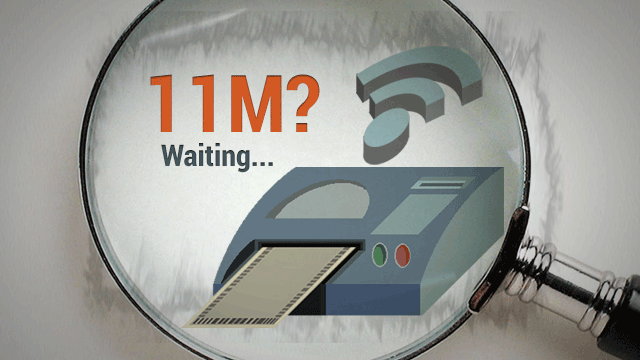SUMMARY
This is AI generated summarization, which may have errors. For context, always refer to the full article.

MANILA, Philippines – What was supposed to be a quick count has slowed to a snail’s pace two days after the country’s second automated national elections.
Since Tuesday morning, May 14, the percentage of precincts accounted for nationwide has stayed steady at 69%. (Check out our PCOS Transmission Status Map to see areas where machines failed to electronically transmit results.)
As of 11:26 am on Wednesday, May 15, a total of 24,090 precincts nationwide have not yet been received by the Commission on Elections’ Transparency Server.
These precincts account for 15.4 million voters or almost a third of total voters nationwide. Based on our own calculation of current average precinct turnout of 77.26%, this means that the system is still missing some 11.9 million votes from Filipinos who went out to vote on May 13.
We based this on data from the Comelec-Rappler Mirror Server which comes from the Transparency Server.
The Transparency Server and the Rappler Mirror Server are considered the unofficial counts. It is the 3rd transmission the voting machines make after the polling centers close.
The official tally is the one the machines transmit to the municipal or city board of canvassers and eventually to the National Board of Canvassers which becomes the basis for the proclamations.
The total number of votes for precincts unaccounted for could still significantly affect the count. It exceeds total votes obtained so far by leading senatorial candidate Grace Poe. Rappler’s tally shows that as of 11:26 am of May 15, Grace Poe has already obtained a total of 14,692,908 votes. (See our results page)
Snail’s pace
The count kicked off at around 7:30 pm of Monday, May 13 with 30 precincts reporting.
The biggest chunk of data came in at around 8:30 pm, bringing the total of tallied precincts to 17,303 from 80 precincts in previous counts.
Succeeding tallies after that came in small increments of precinct counts – by the thousands.
But by 10:29 am Tuesday, May 14, the new files that came in added less than 100 precincts to the total precinct tally.
As of May 15, new precincts added to total tally for every file received by the Rappler Mirror Server has been down to single digit numbers.
The 12:15 am May 15 tally added only two new precincts to the 12:07 am tally of 54,077 precincts.
“We expected that at a certain point, the transmissions coming in would slow down wherein we would only be receiving increments of 1 or 2 machines per file. But this is happening a little too early since only 69.17 % have been transmitted so far,” said Ana Singson, director of the Parish Pastoral Council for Responsible Voting.
“I am very worried that we were blind to more than 8% of the data in 2010. But at this point, unless transmissions are speeded up we might not be able to see an even larger percentage in 2013,” she added.
Namfrel’s concern
The National Citizens’ Movement for Free Elections (Namfrel) has expressed the same concern about the slow transmission of votes.
In a statement Wednesday, Namfrel confirmed that “only 69.1618% of the PCOS machines have transmitted results to the Comelec transparency server.”
“The slow aggregation of electronic results confirms reports being sent by our volunteers nationwide to the Namfrel National Operations Center in Mandaluyong City on the problems experienced in the transmission of results from the PCOS machines due to several reasons such as lack of modem, weak or lack of signal, and the PCOS malfunctioning,” the statement added.
United Nationalist Alliance (UNA) campaign manager Toby Tiangco earlier urged the Comelec to explain the delay.
In a press conference on Tuesday, May 14, he said the turnout percentage they were getting is the same as what Rappler has on its mirror server, a number comparatively lower than the percentage already available by midnight during the 2010 presidential elections.
Other than Rappler, dominant minority UNA is also connected to the Comelec server, along with the dominant majority (Liberal Party) and the Parish Pastoral Council for Responsible Voting (PPCRV).
“First, I think what Comelec has to do is to at least give a statement from James Jimenez on why we are slower this time. Isn’t it normal that if it’s the second time you’ve done [something], you must be faster? So why did we slow down now? How are they going to do the 48-hour proclamation if we’re slow?” Tiangco said in Filipino. – Rappler.com
Add a comment
How does this make you feel?
There are no comments yet. Add your comment to start the conversation.